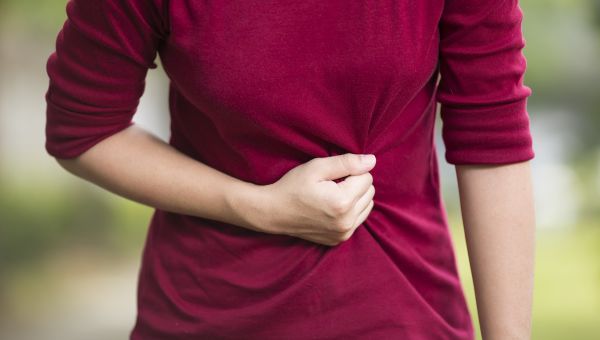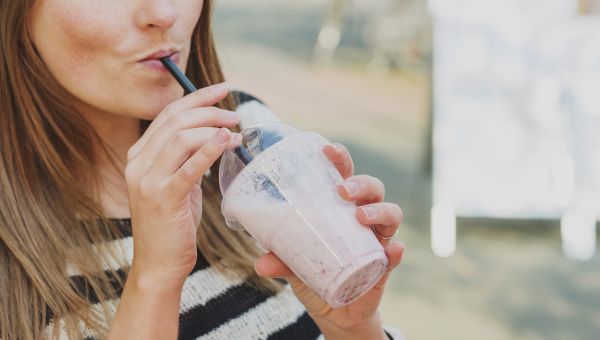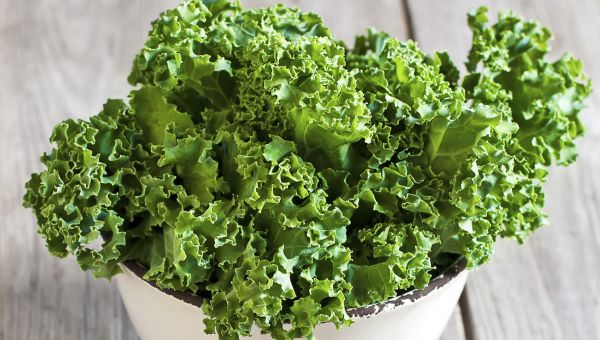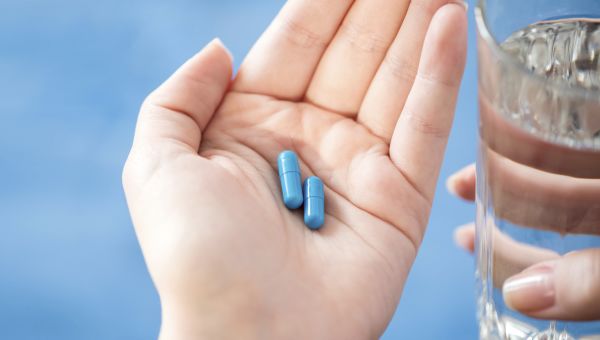4 surprising causes of belly bloating
Learn how to ease bloating and flatten your belly.

Feeling a little puffy? There are myriad causes of belly bloating—from premenstrual symptoms, to overeating, to simply eating too quickly—but fortunately, bloating rarely signals something more serious. You can get relief, and assurance that you’ll be able to button your jeans again, by avoiding these unexpected sources of gas and bloating.

Swallowing Extra Air
Just like eating too quickly, everyday habits that force you to gulp down excessive air can make your gut feel like a beach ball. And you’re probably doing it without even realizing: drinking through straws, chewing gum or talking while eating allows excess air to enter your mouth and travel to… Show More
Just like eating too quickly, everyday habits that force you to gulp down excessive air can make your gut feel like a beach ball. And you’re probably doing it without even realizing: drinking through straws, chewing gum or talking while eating allows excess air to enter your mouth and travel to your digestive tract. Luckily, it’s easy to relieve discomfort by going for a short walk or stretching.
Show Less
Feeling Stressed
Stress has many unpleasant side effects like headaches and chest pain, but it can affect digestion, too. The digestive tract is sometimes called “the second brain” because it contains so many nerves that regulate digestion. When you’re feeling stressed, those nerves feel it, too, which can lead… Show More
Stress has many unpleasant side effects like headaches and chest pain, but it can affect digestion, too. The digestive tract is sometimes called “the second brain” because it contains so many nerves that regulate digestion. When you’re feeling stressed, those nerves feel it, too, which can lead bloating, cramping, diarrhea and constipation. There’s also some evidence that stress can impact the production of digestive enzymes and cause an imbalance in the “good” bacteria our gut needs to function properly. Relaxation techniques can help calm nerves and protect your microbiome—just don’t suck in too much air during deep breathing exercises.
Show Less
Eating Cruciferous Vegetables
Incorporating more cruciferous veggies like kale, cauliflower and broccoli into your diet is a great way to get your daily dose of vitamins C, K and E, and fiber. Unfortunately, these nutrient-dense veggies also contain difficult-to-digest fiber and a sugar called raffinose. Humans can’t digest… Show More
Incorporating more cruciferous veggies like kale, cauliflower and broccoli into your diet is a great way to get your daily dose of vitamins C, K and E, and fiber. Unfortunately, these nutrient-dense veggies also contain difficult-to-digest fiber and a sugar called raffinose. Humans can’t digest raffinose, but gut bacteria love to feed on it—and when they do, they produce excess gas. Get your greens without the excessive gas by steaming or roasting them; you’ll still get the nutrients, but it’ll soften the fiber, so it’s easier to digest.
Show Less
Taking Antibiotics
A course of antibiotics can sometimes disrupt the balance of bacteria in your digestive system, too. Encourage the growth of “good” bacteria and restore the balance by pairing your antibiotic treatment with a probiotic. Unfortunately, scientists aren’t certain which type of probiotic works best for… Show More
A course of antibiotics can sometimes disrupt the balance of bacteria in your digestive system, too. Encourage the growth of “good” bacteria and restore the balance by pairing your antibiotic treatment with a probiotic. Unfortunately, scientists aren’t certain which type of probiotic works best for restoring bacteria, but you can find them in supplements or foods that naturally contain probiotics, like yogurt or fermented foods, such as sauerkraut or kimchi.
Show LessMore On


video

article

slideshow


video


video
